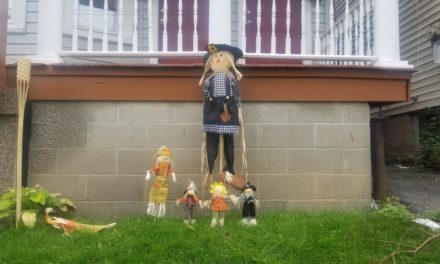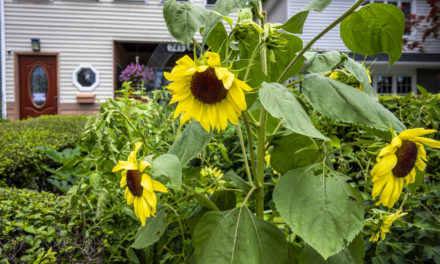The popularity of yoga shows no signs of slowing – a fact demonstrated by the growing number of classes offered around the Capital Region.
There are a plethora of places where one can practice, and a wide range of options available – from gentle stretching to super-intense hot flows, and yes, even aerial.
You can do yoga with goats, or cats, or dogs, or even lemurs – though sadly, that’s not available locally…yet. There is silent yoga, and yoga with music. Yoga with weights, and yoga offshoots, like barre.
It seems like there should be some sort of yoga out there for every body and every taste. But generally speaking, these classes have one thing in common: They are overwhelmingly populated by white women.
There are, of course, exceptions to this rule. But yoga, a spiritual practice with deep roots in India and, some research indicates, Africa or, more specifically, Egypt, in the U.S. has become the hallmark of upwardly mobile females with a certain amount of disposable income.
The reality is that you don’t have to be white, rich, or thin, or clad from head-to-toe in expensive matching gear to participate in, or benefit from, yoga.
In fact, one might argue that the less you meet that description, the more yoga – traditionally the connection of mind, body and spirt – could do for you.
Making yoga, meditation and other means of improving mental and spiritual health available to people regardless of their race, class or socioeconomic status is the mission of Root3d, a wellness center in Albany’s South End founded by Rachelle “Chelle” Pean and her partner, Jamel Mosely.
“The driving force behind Root3d is that healing is for EVERYONE; healing yourself is your birthright regardless of your race, body type, gender identity and expression, or your financial status,” the center’s website states.

Pean is a 29-year-old Schenectady native, published author and renaissance woman who describes herself as “of Haitian and white descent.” She received a bachelor’s degree in Psychology from SUNY Purchase, and a masters in Clinical Social Work with Individuals and Families from CUNY Hunter.
Pean says she was introduced to yoga at an early age – about eight. But it wasn’t a case of love at first down dog. The class she attended was instructed by her aunt. She recalls bursting into giggles during the practice, and didn’t feel yoga was something she wanted to do again.
In college, Pean returned to yoga, taking a course to get some “easy credits.” Again, nothing. It wasn’t until she needed help managing the stress of graduate school that Pean connected with yoga as “a place that could be for me and that could really help me navigate through the world.”
“I was also working in a mental health clinic as an intern and saw that many of my clients could really benefit from this tool to connect them with themselves and release stress and trauma in the body,” Pean recalls. “And so I got the training specifically to incorporate it into my work as a therapist.”
As she delved more deeply into her own practice, Pean experienced “many wellness studios that had all white instructors and mostly white students,” and she often felt like the “other” in the room.
She then found Yoga to the People in New York City, which also has sites in California and Arizona. This studio stresses that yoga is for everyone, and runs classes on a “pay what you can” model, with a suggested donation of $10. You can pay more, or less, no one checks or keeps a tally.
I felt the inclusivity and freedom of being in a room filled with different body types, cultural backgrounds, and physical abilities,” Pean says. “I fell in love with that feeling, and do my best to create that atmosphere in my classes now.”
“It still makes me angry that there aren’t more spaces like that, and that anger is what motivates me to do this work.”
After returning to Albany, Pean started trying to make yoga more accessible to people of color in Schenectady, and then offered her own pay-what-you-can class at the African American Cultural Center in Albany. That class quickly became popular, and often filled to capacity.
It was clear that people – all kinds of people – were eager for what yoga had to offer.

Root3d, which also offers a variety of cultural and wellness programming – from African drumming to crystal healing – came together within a matter of weeks after Pean spotted a storefront available on South Pearl Street.
She is joined there by Mosely, a community builder, multidisciplinary artist and entrepreneur; and more than a dozen local teachers and practitioners of Reiki, yoga, dance, card reading, drumming, drama, meditation and more.
Among those is Pean’s close friend, Karyn Dyer, who the Root3d site describes as “an intuitive reader with an intention to provide people a place to pause, channel their intuition, and reflect.
Together, Pean and Dyer brainstormed the studio’s name.
“We talked about the importance of grounding and feeling safe in your body and connected,” Pean recalls. “She suggested the word ‘rooted,’ and I loved it, and then thought of how we are actually ‘rooting’ ourselves in the three dimensions of ourselves: mind, body, and spirit.”
Mostly and Pean hope that Root3d will help spur a renaissance in the South End, which, in a perfect world, Pean says, would see the neighborhood “grow into its own ecosystem that gives the community options and quality in the foods they can eat, the activities they can engage in, and the opportunities that are local and accessible for self development.”
And it’s crucial, in Pean’s mind, that members of the community actively participate in the rebirth, and not have it dictated to them by outside influences seeking – perhaps even with good intentions – to force them into an economic development blueprint that doesn’t necessarily fit their needs or vision.
“We have to trust the members of the community to know best what they need; better than anybody else,” Pean says.
“Paternalism is a way that racism has functioned silently in many systems, where systems determine what is best for the individual because they believe they will make better decisions than the individual can,” she continues. “If we allow people in the community to make choices for themselves, (but first GIVE them choices that are accessible), we will learn what works.”
Root3d is located at 165 S. Pearl St., Albany, NY, 12202.

Pictured in the main image at the top of this post: Jamel Mosely, Shannon Hoffman, Ashley Whitefield, Rachelle Pean, Rachael Pietrocola.


